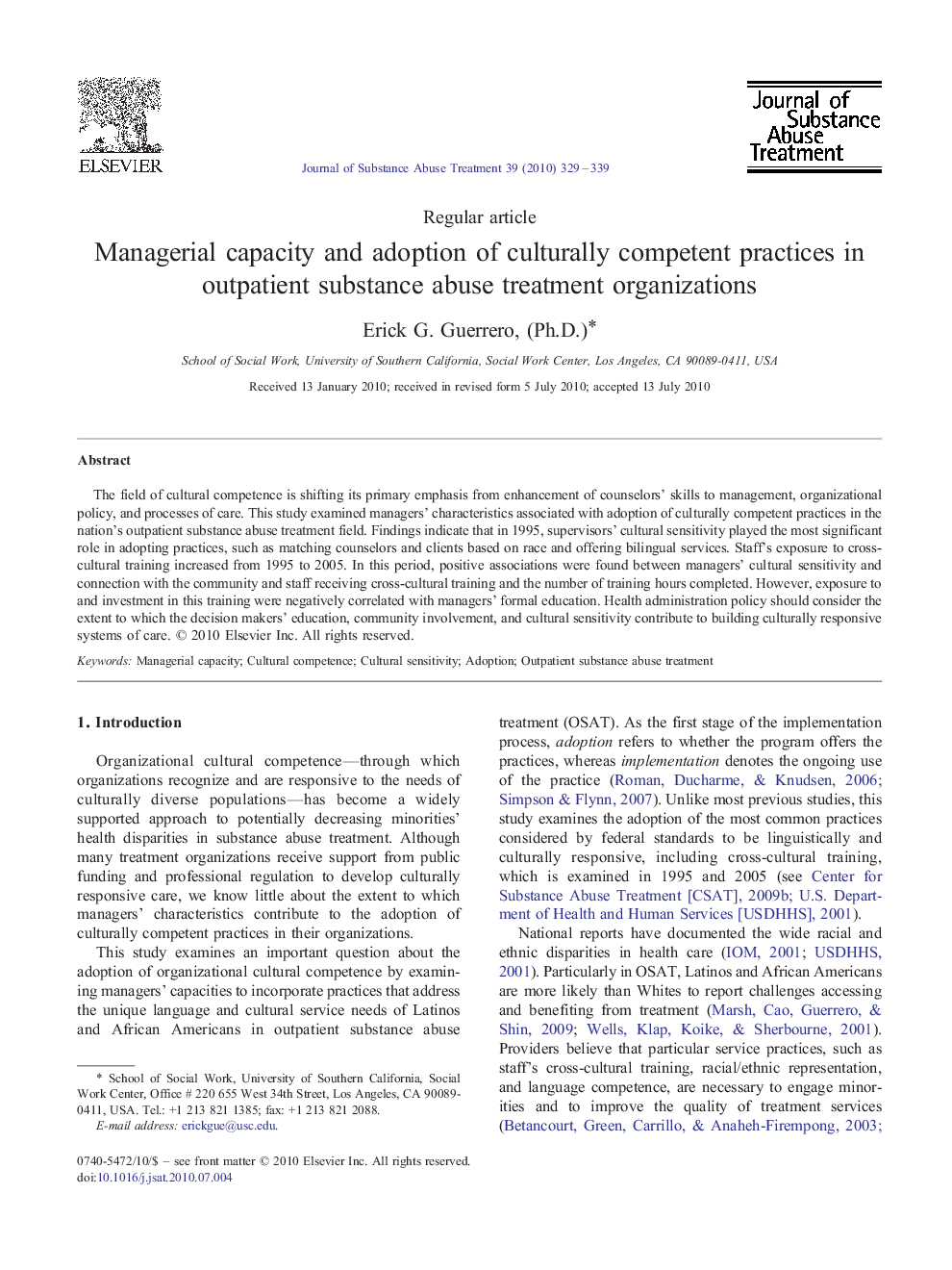| Article ID | Journal | Published Year | Pages | File Type |
|---|---|---|---|---|
| 329982 | Journal of Substance Abuse Treatment | 2010 | 11 Pages |
The field of cultural competence is shifting its primary emphasis from enhancement of counselors' skills to management, organizational policy, and processes of care. This study examined managers' characteristics associated with adoption of culturally competent practices in the nation's outpatient substance abuse treatment field. Findings indicate that in 1995, supervisors' cultural sensitivity played the most significant role in adopting practices, such as matching counselors and clients based on race and offering bilingual services. Staff's exposure to cross-cultural training increased from 1995 to 2005. In this period, positive associations were found between managers' cultural sensitivity and connection with the community and staff receiving cross-cultural training and the number of training hours completed. However, exposure to and investment in this training were negatively correlated with managers' formal education. Health administration policy should consider the extent to which the decision makers' education, community involvement, and cultural sensitivity contribute to building culturally responsive systems of care.
